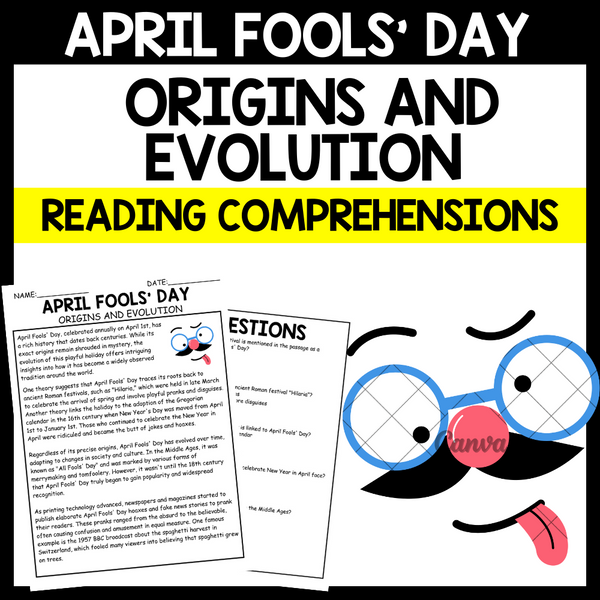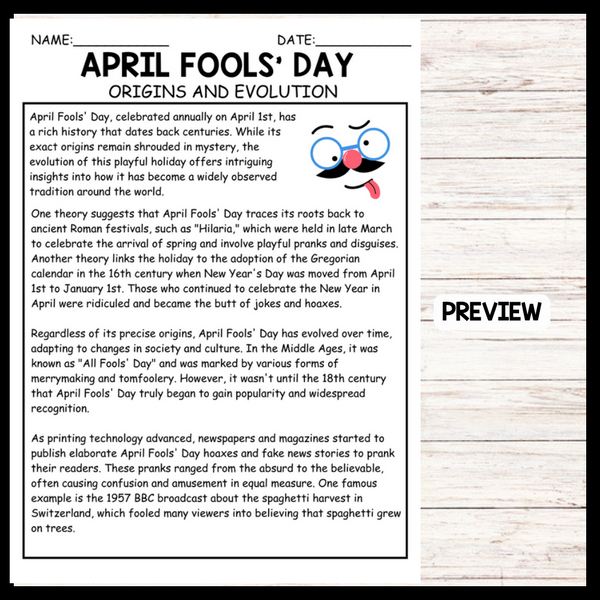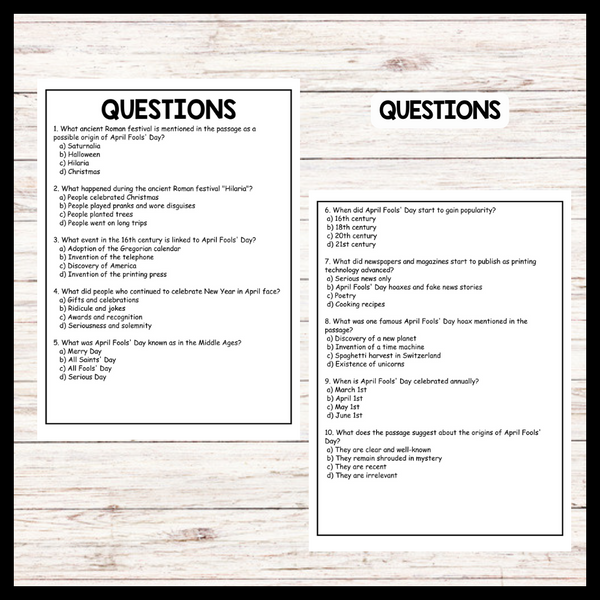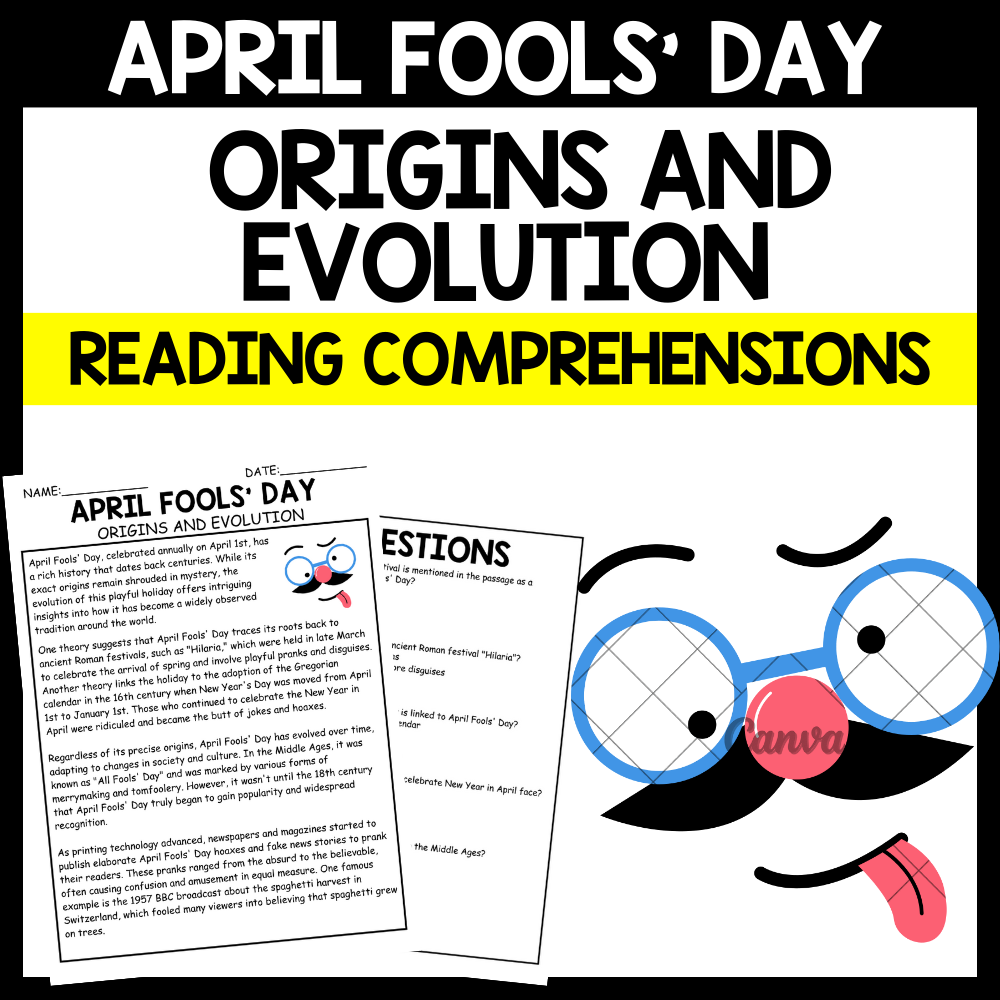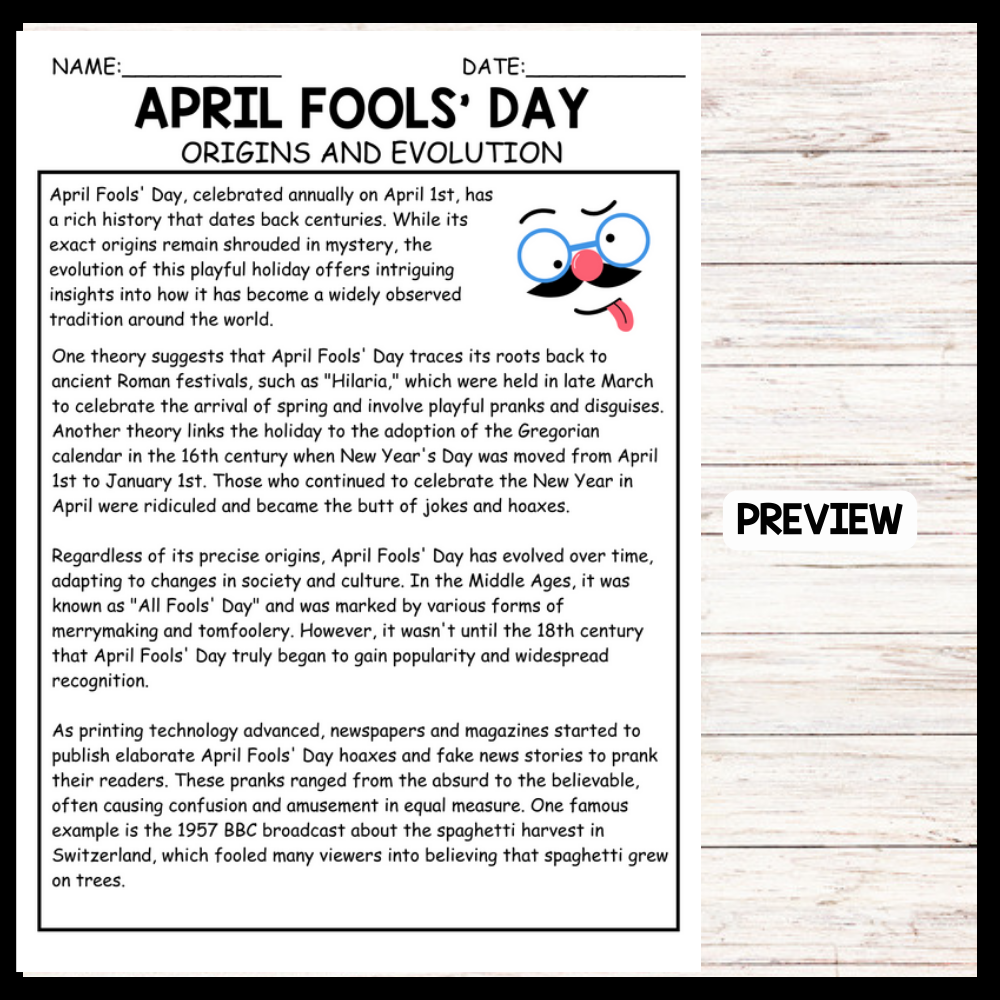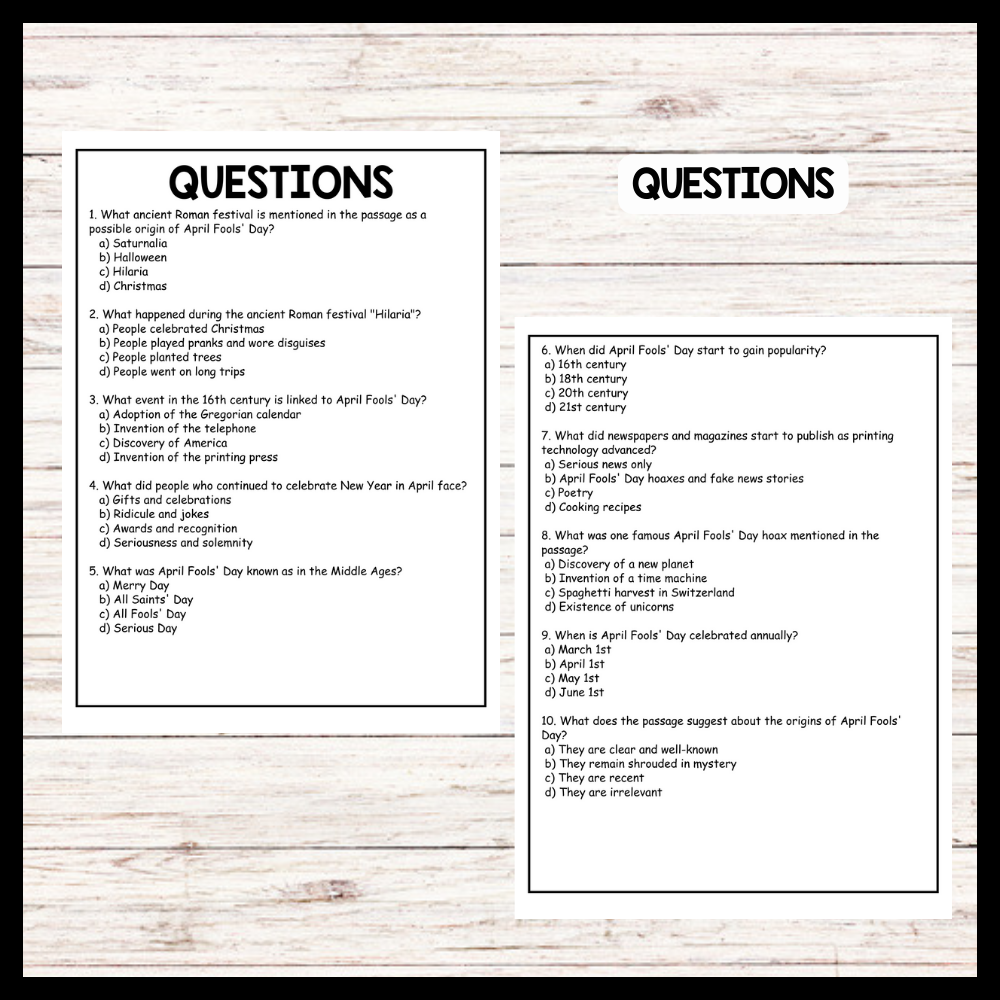Get your First purchase 100% FREE - Apply WELCOME100 Shop Now!
- Home
- Jane Truman
- "ORIGINS AND EVOLUTION" APRIL FOOLS' DAY Reading Comprehension
This passage explores the potential origins of April Fools' Day, linking it to ancient Roman festivals like "Hilaria" and the 16th-century adoption of the Gregorian calendar. It outlines the evolution of the holiday, noting its medieval roots as "All Fools' Day" and its rise in popularity during the 18th century. The passage also highlights the role of media in perpetuating elaborate pranks, exemplified by the 1957 BBC spaghetti harvest hoax. Teachers can use this passage to provide students with historical context and examples of April Fools' Day pranks, enhancing their understanding of the holiday's cultural significance.
🔥 Hot Sale
Hurry Up! Up to 60% Off
Related Products
Instant Download
All products are Instantly Accessible
Safe Payments
100% Secure Payments
24/7 Help Center
Dedicated 24/7 Support
Shop With Confidence
Verified Creators & Artisits
Terms and Conditions / Promotions / My Orders / Help / Refund Policy / Privacy Policy / Support / Most Populars / New Arrivals / Special Products / Creators/Authors
Our Stores / Payments / Copyrights/ Discount / Terms & Conditions / Returns / Refunds / Affiliate Program


